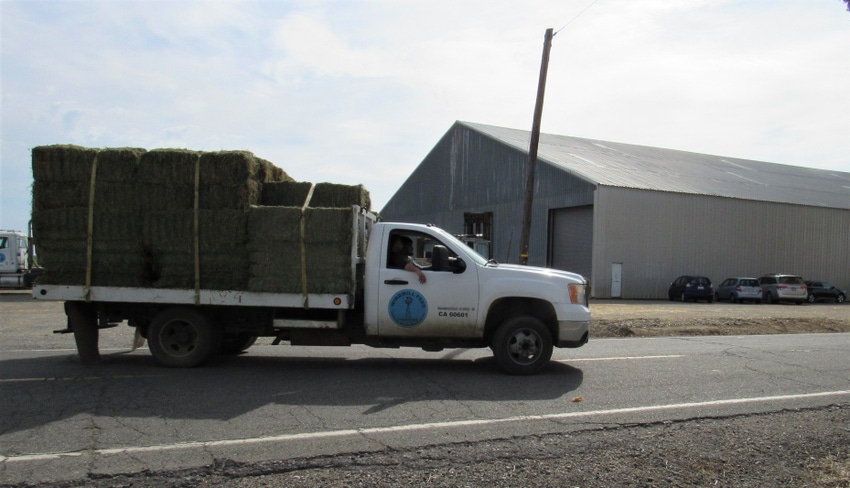
A new California law that treats many independent contractors as employees could make some growers think twice about how they use harvest crews, truck drivers and others who provide services to their farm, experts say.
Gov. Gavin Newsom signed Assembly Bill 5 in September, codifying a recent California Supreme Court decision that a person providing labor or services should have the rights and benefits of an employee unless the person meets a three-part test.
Under the test, the worker must be:
Free from the control and direction of the hiring entity in performing the work;
Doing work that is outside the usual course of the business; and
Customarily engaged in an independently established trade, occupation or business.
While it’s intended to address the status of workers for so-called “gig economy” companies such as Uber and Lyft, the law is expected to significantly impact agriculture, opines Daniel Pyne, a San Jose, Calif.-based labor attorney.
Farms and other ag-related businesses will be forced to reclassify some workers as employees, making them eligible for minimum wage, health care and overtime protection, or pay hefty penalties, he said.
“A lot of the clients that we work with have independent contractors,” said Pyne, who chairs Hopkins and Carley’s Employment and Labor Law Practice. “This new law expands on the California Supreme Court decision last year that will make it more difficult for a lot of people who have been independent contractors in the past to validly be treated as contractors going forward.”
NUMBER UNCLEAR
The number of farmworkers that will be affected is unclear, Pyne and other experts say. Most individual workers are either employees of the farm or of a farm labor contractor, notes Daniel Sumner, director of the University of California’s Agricultural Issues Center.
“I think very few of the individuals are themselves independent contractors,” he said.
However, veterinarians, pest control advisors and even some custom harvesters who bring their own equipment are more likely to be independent contractors, Sumner said.
Another group that could fall under the law is independent truck drivers and haulers who move fruit and other farm goods. The bill includes numerous exemptions for various professions, such as hair stylists, lawyers and accountants, but doesn’t exempt the owner-operator truck drivers who serve the agricultural industry.
“The concern from our end is primarily for the independent haulers and truckers moving fruit from the field to the packing house,” said Alyssa Houtby, California Citrus Mutual’s government affairs director. “Those haulers are not employees, they’re hired contractors.”
Industry representatives and attorneys have concluded that in most cases, drivers hauling fruit meet the second of the three tests – that the activity is not a core function of the business, which is growing and packing, Houtby said.
“Trucking is part of the supply chain, but it’s not a core function,” she said. “When you look at that standard, we can argue that independent hauler-truckers are not employees.”
COURT DECISION
AB 5 by Assemblywoman Lorena Gonzalez, D-San Diego, seeks to enforce last year’s 82-page decision in Dynamex v. Supreme Court that recognizes many classes of independent contractors as employees. The decision stemmed from a lawsuit filed in 2005 after Dynamex, a nationwide same-day courier and delivery service, converted all of its drivers to independent contractors in a cost-saving move.
Among the numerous professionals covered under the law are rideshare and delivery services such as Uber and Lyft; janitors and housekeepers; health aides; newspaper carriers; campaign workers; and land surveyors, landscape architects and geologists, the nonprofit news service CalMatters reports. Exempted workers include doctors, lawyers, accountants, real estate agents, direct salespeople, builders and contractors.
Gonzalez, a former labor leader and farmworker’s daughter who authored the controversial ag overtime law passed in 2016, asserts that employers statewide have “misclassified” more than 1 million Californians. She argues the practice has proliferated in industries such as trucking, delivery, janitorial and construction “for decades” and that the advent of app-based companies and the “gig economy” have only made it worse.
However, 70 percent of people working independently are doing so by choice rather than as a necessity, according to a 2016 survey of about 8,000 U.S. and European respondents by the McKinsey Global Institute. A 2018 National Public Radio/Marist University poll found that 1 in 5 jobs in America were held by a worker under contract.
WILL IT WORK?
Diane Mulcahy, an author and expert on the gig economy, contends that AB 5 won’t work for a variety of reasons. For one thing, the same law has been in effect for a decade in Massachusetts “with no discernible impact on the worker classification habits” of companies that use outside contractors, Mulcahy wrote in an op-ed in Forbes magazine.
Moreover, enforcement “would be slow and uncertain” because the law puts the burden on cities and the state to challenge a company’s worker classifications through legal action, she wrote.
However, individual workers can also bring claims, and they often do as a class action, Hopkins and Carley’s Pyne told Western Farm Press.
“The liability certainly could be significant,” he said. “For a company that has a lot of workers they’re classifying as contractors or a company that has a long-standing practice of paying individuals as contractors … and all the long hours trigger overtime that’s not being paid, there could be penalties.”
For their part, farm groups will be watching the cases closely – and in the case of Citrus Mutual, working with lawmakers who have voiced a desire for follow-up legislation allowing more agricultural exemptions.
CCM recommends that hiring entities seek legal counsel to help determine if their contract arrangements satisfy the test. The organization is offering its members one hour of legal counsel with the Saqui Law Group.
AB 5 passed the Assembly and Senate on party-line votes and was signed by Newsom on Sept. 19.
About the Author(s)
You May Also Like






